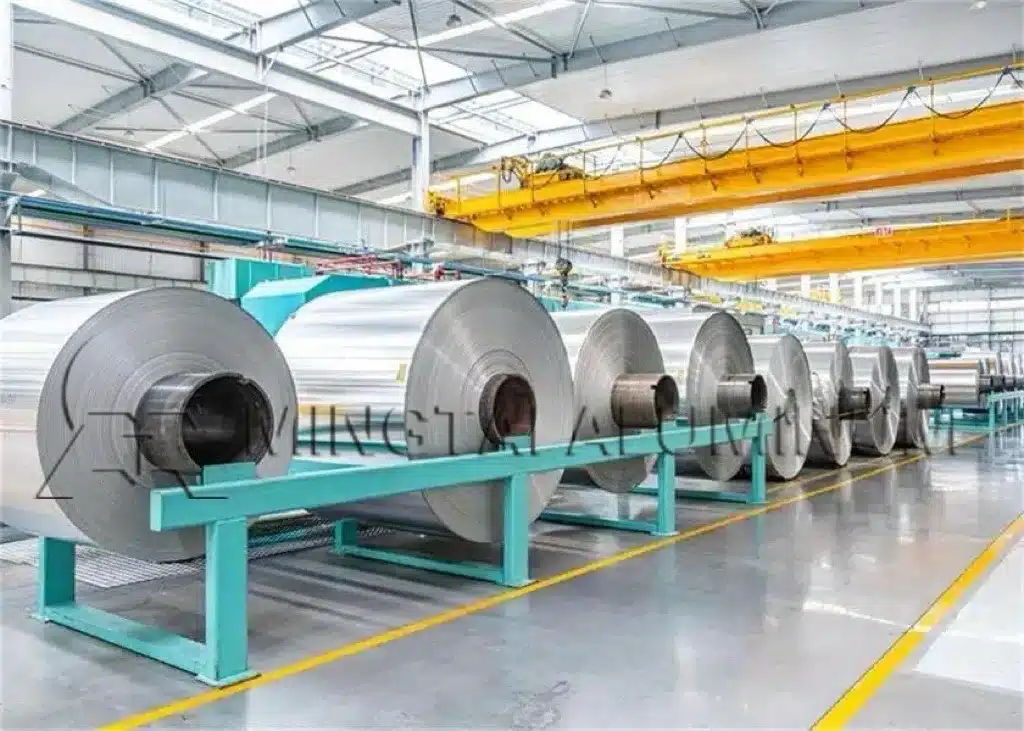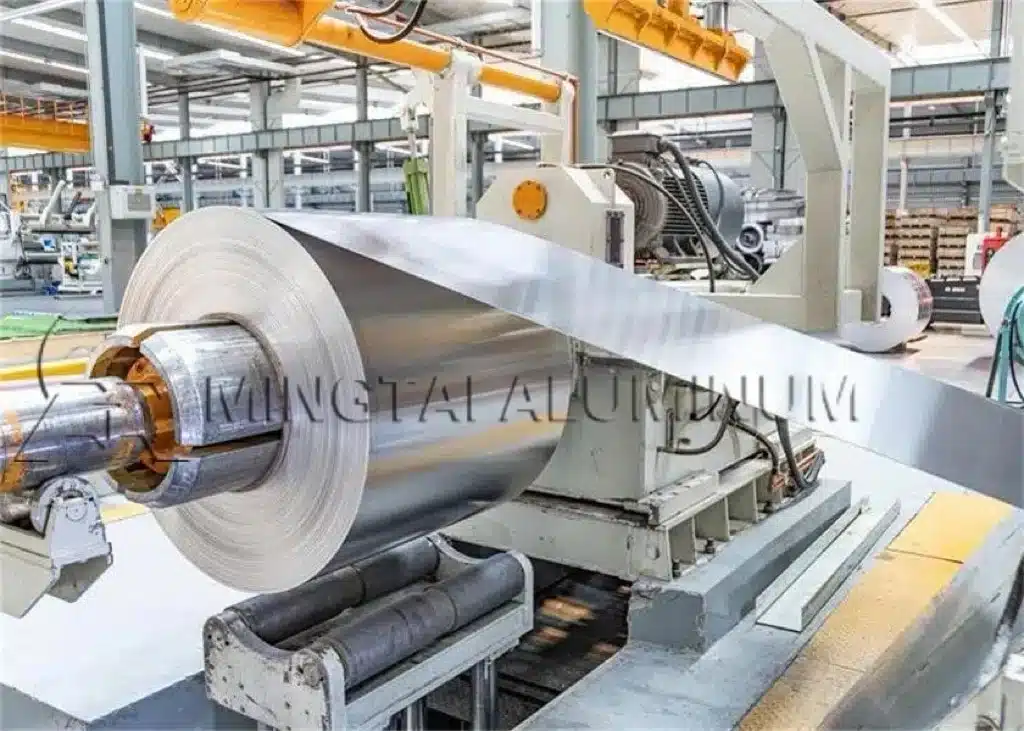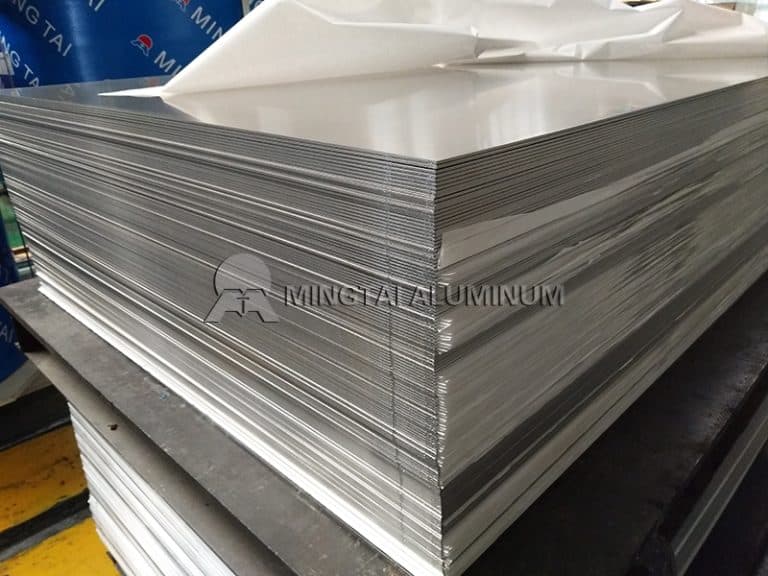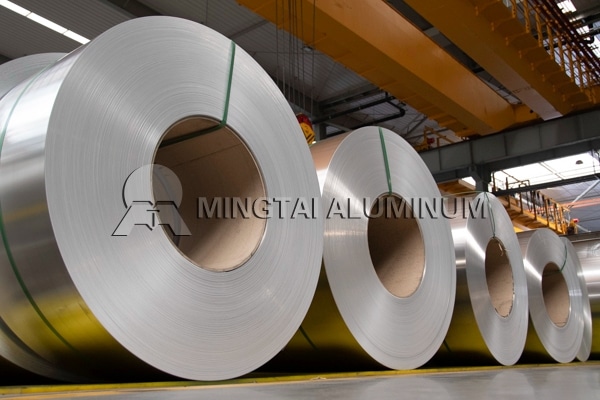
Getting to Know Aluminum Coil
What Is Aluminum Coil and Why Is It Special?
Aluminum coil is a flat, rolled material, usually made in long strips or rolls. It’s super versatile and pops up in all kinds of industries. People love it because it’s light, doesn’t rust easily, conducts electricity well, and is simple to work with. These qualities make it a go-to for manufacturing.
Take aluminum coil stock, for example. It’s a favorite in construction, transportation, and packaging because it’s tough and adaptable. Plus, aluminum trim coil adds a nice look and protection to building exteriors. You’ll often see metal trim coil in roofing or siding, proving aluminum can handle rough weather without losing its edge.
Where Aluminum Coil Shines
Aluminum coil gets used in tons of places:
- Construction: Think roofing, gutters, siding, or curtain walls.
- Transportation: It’s in car bodies, airplane parts, and train cars.
- Packaging: Perfect for cans, foils, and food containers since it’s non-toxic.
- Electrical Uses: Great because it conducts electricity so well.
For instance, 5005 aluminum coils are handy for things like conductors, kitchen tools, control panels, casings, or even decorative building bits. Similarly, 1060 aluminum coil shows up in aluminum-plastic panels, lighting, or capacitor shells.
Types of Aluminum Coil
Sorting by Alloy Types
Aluminum coils are grouped by their alloy families:
- 1000 Series: These are awesome at resisting rust and conducting electricity. Take 1350 aluminum sheet coils—they’re known for being great conductors and rust-fighters.
- 3000 Series: Includes alloys like 3005 and 3104, which are easy to shape and fairly strong. The 3005 coil is perfect when you need something that won’t rust.
- 5000 Series: These have magnesium, making them strong and rust-resistant. For example, 5052 aluminum coil is weldable and has decent strength.
- 6000 & 7000 Series: Used when you need something with a high strength-to-weight ratio.
Surface Treatments and Finishes
Treatments make aluminum coils even better:
Anodized Aluminum Coils
Anodizing adds a thicker oxide layer to the coil’s surface. This makes it tougher and more resistant to wear. It also lets you add cool decorative finishes.
Painted Aluminum Coils
Color-coated aluminum gets a layer of paint, like fluorocarbon or polyester coatings. These are popular for things like aluminum-plastic panels or roofing because they hold up so well.
How Aluminum Coil Is Made
Picking and Prepping Raw Materials
It all starts with choosing top-notch raw materials that fit the job. Purity matters a lot, especially for electrical or food-safe aluminum products.
Rolling and Shaping
Hot Rolling vs. Cold Rolling
Hot rolling happens at high temperatures to get the right thickness. Cold rolling is done at room temp to smooth out the surface and tweak the material’s properties.
For example:
- Hot rolling is great for thicker pieces.
- Cold rolling is better for precise sizes or smoother finishes.
Keeping Quality in Check
Quality control makes sure every coil is up to par:
- Testing things like tensile strength.
- Checking the surface for flaws.
- Using fancy tools to measure dimensions accurately.
By sticking to tough standards, manufacturers create reliable products like coil rolls or white coil stock. This keeps performance high across all kinds of uses while keeping aluminum coil prices fair worldwide.
Why Aluminum Coil Is Awesome
Light but Tough
Aluminum coil is famous for being light yet strong. That’s why it’s a top pick in so many fields. Its low density means less weight in things like cars or buildings, but it still holds up. Its toughness means it lasts, even in rough conditions. That’s why aluminum coil roll is a manufacturing staple.
For example, aluminum trim coil is a go-to for building exteriors. It stands up to wind, rain, and temperature swings. This makes it perfect for metal trim coil in roofing or siding.
Rust-Proof and Long-Lasting
Aluminum coil is a champ at fighting rust. A natural oxide layer forms on its surface, acting like a shield against moisture and other harsh stuff. This makes it ideal for tough environments.
The 5052 aluminum coil, part of the Al-Mg family, is great at resisting rust. It stays strong and doesn’t break down over time, which means less maintenance and a longer life. White coil stock made from aluminum is often used outdoors because it looks good and works well for years.
Super Versatile
Aluminum coil’s flexibility makes it a fit for all sorts of industries. In construction, it’s used for coil stock, gutters, siding, or curtain walls. In transportation, its light weight boosts fuel efficiency in things like car bodies or plane parts. Packaging loves it for food containers and cans because it’s non-toxic.
For example, 5005 aluminum coils are used for conductors, kitchen tools, panels, casings, and decorations. The 3104 aluminum coil is great for deep drawing and stretching tasks. These show how aluminum coil stock works across so many fields.
What to Think About When Choosing Aluminum Coil
Size Matters: Thickness, Width, and Length
Picking the right dimensions is crucial. Thickness affects how strong or flexible the coil is for a specific job. For example:
- Thin coils are great for packaging.
- Thicker ones work better for structural stuff.
The 1350 aluminum sheet coils come in thicknesses from 0.1mm to 500mm. Widths can go up to 2650mm, depending on what you need.
Alloy Types and Their Traits
Different alloys have special qualities for different jobs. For example:
- The 5052 alloy is strong and resists fatigue well.
- The 1060 aluminum coil is super clean, making it great for polymer welding.
Knowing these traits helps you pick the right alloy for shaping or welding.
Surface Finishes and Custom Options
Surface treatments make coils look better and work better:
- Anodized finishes make them tougher.
- Painted surfaces, like color-coated coils, are great for decoration.
You can also customize with things like embossing or perforation to fit specific needs.
MINGTAI ALUMINUM’s Focus on Quality

Top-Notch Standards for Aluminum Coils
Cutting-Edge Manufacturing
MINGTAI ALUMINUM uses the latest tech to keep quality consistent. From picking raw materials to final checks:
- Hot rolling gets thicknesses just right.
- Cold rolling smooths surfaces for precision jobs.
These methods ensure products like coil rolls meet high standards while keeping aluminum coil prices affordable.
Products for All Kinds of Industries
MINGTAI ALUMINUM serves tons of sectors with specialized products. For example, 5754 aluminum coil is used in car manufacturing, like car doors, because it’s strong and rust-resistant. The 3005 aluminum coil is great for parts that need to be shaped easily.
Testing and Samples for Confidence
To keep customers happy:
- We offer samples when asked.
- Thorough testing checks things like strength or size accuracy.
By focusing on quality every step of the way, MINGTAI ALUMINUM proves it’s a trusted supplier of top-quality aluminum trim coil solutions for all sorts of industrial needs.
FAQ
Q: What is an aluminum coil?
A: An aluminum coil is a flat-rolled product made from aluminum, typically produced in long, continuous strips or rolls. It’s lightweight, rust-resistant, and easy to shape, making it a versatile material used in industries like construction, transportation, and packaging.
Q: What are the main properties of aluminum coil?
A: Aluminum coils are known for being:
Lightweight: Low density reduces weight in applications.
Rust-resistant: A natural oxide layer protects against corrosion.
Conductive: Excellent for electrical uses.
Easy to work with: Simple to cut, shape, or weld.




